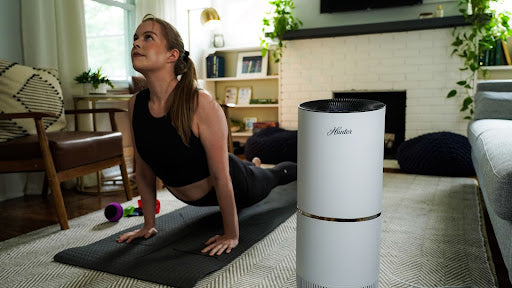
The Power of HEPA Filters: Unraveling Their Effectiveness
In a world where air quality is becoming a growing concern, the significance of efficient air filtration cannot be overstated. High Efficiency Particulate Air (HEPA) filters and True HEPA filters have emerged as one of the most effective solutions for removing airborne particles and contaminants. Their remarkable efficiency and ability to enhance indoor air quality have made them a staple in various settings, from homes and offices to hospitals and industrial environments. HEPA and True HEPA filters are extremely effective and continue to play a pivotal role in maintaining cleaner and healthier air all over the world.
The distinction between HEPA and True HEPA filters primarily lies in the level of filtration efficiency they offer. While both types aim to remove airborne particles and contaminants, True HEPA filters adhere to stricter standards. A standard HEPA filter is required to capture 99.97% of particles as small as 0.3 micrometers, whereas a True HEPA filter meets even more rigorous criteria, capable of trapping particles as small as 0.3 micrometers with the same 99.97% efficiency. The "True" designation signifies a higher level of performance, making True HEPA filters the ultimate choice for those seeking uncompromising air quality.
In this blog, we will be primarily focusing on True HEPA filters and their effectiveness.
Understanding True HEPA Filters
True HEPA filters are advanced air filters designed to trap particles with a high level of efficiency. To qualify as a True HEPA filter, it must meet rigorous standards set by organizations like the U.S. Department of Energy (DOE) and the European Committee for Standardization (CEN). The size of particles is important, and these standards mandate that a True HEPA filter must be able to remove at least 99.97% of particles that are 0.3 micrometers in size or larger.
Mechanism of Filtration
The effectiveness of True HEPA filters stems from their intricate filtration mechanism. True HEPA filters are composed of a dense mat of randomly arranged fibers, typically made from materials like fiberglass. This intricate arrangement creates a labyrinth-like path for air to flow through. As air passes through the filter, particles and contaminants collide with the fibers and get trapped by a combination of mechanisms, including:
- Interception: Larger particles get caught as they come into contact with the fibers directly.
- Impaction: Slightly larger particles that cannot follow the air streamlines due to their mass are impacted and trapped by the fibers.
- Diffusion: Smaller particles move erratically due to air molecules' collisions and eventually collide with and adhere to the fibers.
This combination of mechanisms ensures that particles of various sizes are effectively captured, leading to the exceptional filtration efficiency of True HEPA filters.
Applications and Effectiveness
True HEPA filters find applications in a wide range of industries and settings:
- Healthcare: In hospitals and healthcare facilities, True HEPA filters are crucial for maintaining sterile environments, preventing the spread of airborne diseases, and protecting both patients and medical personnel.
- Home and Office: In residential and office spaces, True HEPA filters improve indoor air quality by reducing allergens, dust, pollen, and pet dander, thereby providing relief to allergy sufferers.
- Industrial and Laboratories: Industries dealing with hazardous materials, such as pharmaceuticals and microelectronics, utilize True HEPA filters to ensure clean manufacturing environments and prevent contamination.
- Aerospace: In aerospace applications, True HEPA filters are employed to maintain clean air quality within aircraft cabins, ensuring the health and comfort of passengers and crew.
Benefits of True HEPA Filters
- Efficiency: As mentioned earlier, True HEPA filters have an efficiency rate of 99.97% for particles as small as 0.3 micrometers, ensuring the removal of even the tiniest contaminants from the air.
- Health: By removing allergens, mold spores, bacteria, and viruses, True HEPA filters contribute to better respiratory health, especially for individuals with allergies, asthma, or compromised immune systems.
- Versatility: True HEPA filters can be incorporated into various air purification systems, from standalone air purifiers to HVAC systems, catering to different environments and needs.
- Longevity: When properly maintained and replaced at recommended intervals, True HEPA filters can have a longer lifespan, providing prolonged protection against airborne pollutants.
True HEPA filters stand as a testament to the innovation and advancement in air filtration technology. Their effectiveness in removing airborne particles and improving indoor air quality has made them an indispensable tool in various industries and households alike. With their intricate filtration mechanism, stringent standards, and wide-ranging applications, True HEPA filters continue to play a vital role in our ongoing quest for cleaner, healthier air. As concerns about air pollution and indoor air quality persist, the legacy of True HEPA filters is sure to endure, offering a breath of fresh air in an increasingly contaminated world.
How To Get An Air Purifier With A True HEPA Filter
Hunter uses True HEPA filters in many of its air purifier products. See our collection here.
